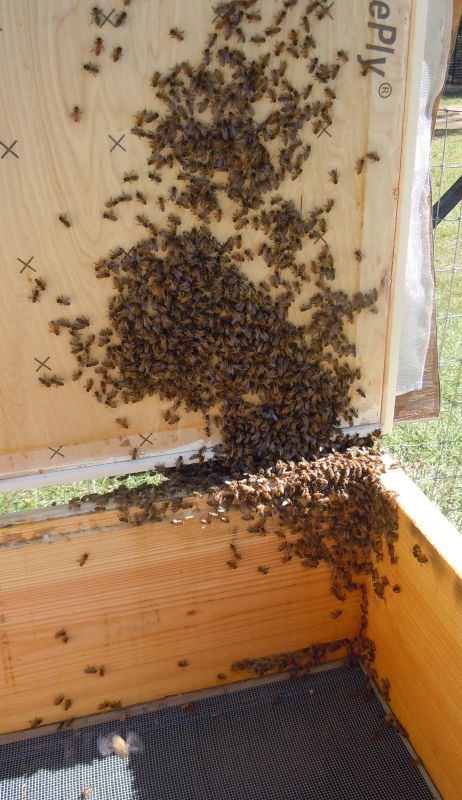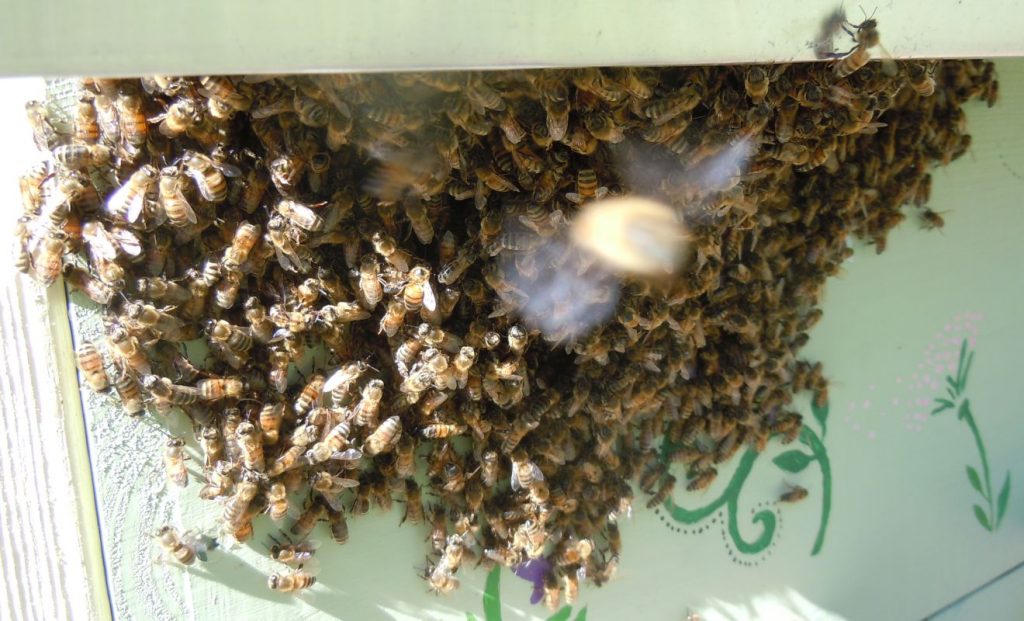
One of my favorite political bloggers – Matt Walsh – posted yesterday that he is interested in taking up beekeeping. I gave him a dire warning that bees will break his heart. It was one of those heartbreaking days today here at Jehovah Jireh Apiary.
As summer wound down, we had high hopes that all three of our colonies would overwinter successfully. We had enforced a brood break in one of our hives, and treated all of the hives against Varroa mites with powdered sugar sprinkles at the end of summer. Afterward, all of our bees seemed to be thriving, and were putting up lots of stores for the winter. We checked them in mid-September, and all appeared fine except that we noticed about 50 dead and dying bees in the open area outside the division board of one of our hives apparently suffering the effects of pesticide exposure. It looked like they were having seizures, and we had several die in our hands as we held them up for a closer look. We also found about 10 bees in the same condition on the ground under the entrance, and feared the worst.
Over the next few days we watched them carefully and saw no more sign of a die-off outside the hive. There was a good healthy bee beard on the outside of the hive during the hot afternoons, of the South Carolina Indian Summer, so we thought we’d dodged a bullet. The first week of October after a week of successive rainy days with cold weather in the forecast, we opened up all three hives for one last check before the onset of winter weather in earnest. Although we found about 50 more dead bees in the empty area of that hive, we saw no more sign of a die-off. The colony had eggs and young brood, so although we couldn’t locate the queen we were confident they were still doing well.
Then last week we had another unexpected break in the weather, so we opened up the hives for another check. We were dismayed to find that the colony with the apparent pesticide exposure had no eggs, no uncapped brood, and only sparse capped brood on a small area of two of the frames. The colony had gone queenless. Their queen had apparently either succumbed to the pesticide exposure herself, absconded due to it or some other issue best known only to her and her minions, or been killed by us during one of our inspections. By then, it had become too late in the season to requeen the colony, and there was no evidence that they had tried to requeen themselves. It was obvious the colony was doomed.
So today, we went into the hive one last time. As expected, we found only one remaining capped brood cell, and one other from which a new adult was just emerging. We knew that the population of the hive would fall off drastically over the next few weeks leaving the colony unable to defend itself against robbers and vermin. So we determined to remove all the honey for our own use. We can’t give it to our other colonies for fear of also exposing them to the pesticide. Nor can we reuse the drawn comb on this hive’s frames. We will melt down the wax from these frames for our own use. All the work these wonderful little creatures did all summer has come to nothing except some tasty honey and pretty candles for their keepers.
The foragers who were away from the hive when disaster struck have returned with the pollen, nectar, water, and propolis they have managed to scrounge today as the foraging season quickly wanes, only to find their secure home dismantled, and the stores they have worked so hard to put up stolen. As I write this, what remains of the colony is hanging in a dense ball on the front of their former home, now left empty and exposed to the chilly autumn air. Those in the interior of the ball will survive the night, but over the next few nights fewer and fewer will make it through to morning until one night soon a killing frost will come and those who remain will all die together.


What a sad, sad story, and worse ending.